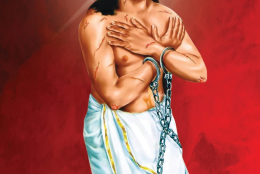Billion dollars falls from G8 table during banquet
As five African leaders were tucking into a state banquet, laid on by G8 summit hosts Canada yesterday, news was breaking of a G8 agreement to add an extra US$1 billion to the international effort to reduce third world debt. The money will top up the Heavily Indebted Poor Countries (HIPC) Trust Fund, a pot of cash which wealthy countries are building up to underwrite the cancellation of the debts of poor countries. It sounds like a large sum, but as third world debt campaigners were quick to point out, the extra money will only help maintain the current spending plans of countries that are already receiving debt relief. "It's welcome because it's been hard fought for by those in the G8 that want to go further on debt," said Christian Aid's Paul Ladd. "But it's only really a corrective measure to help make up for a fundamental flaw in the way debt relief is calculated.' Economists in the International Monetary Fund (IMF) calculate debt relief according to an edict known as 'debt sustainability.' They work out what a country can continue to repay by making an estimate of how much hard currency that country will earn from its exports. The process is reliant on poor countries hitting export earnings targets. But many are heavily reliant on primary commodities, and because of the plummeting world prices of many of these - such as coffee and cotton - they are earning less hard currency than anticipated. "Countries like Uganda are suddenly discovering that some of the money freed up by debt relief, which they had earmarked for spending on schools and healthcare, is being swallowed up by their mainstream budget because of a worsening terms of trade," said Ladd. 'The extra money announced by the G8 will help meet this shortfall, but it really is no more than treading water.' Christian Aid hopes the IMF and leaders of wealthy countries will eventually change the way they calculate debt relief. "Three years after the current package of debt relief was agreed at the G8 meeting in Cologne, poor countries in Africa are still repaying US$15 billion every year," added Paul Ladd. "Debt cancellation must be based on the amount of cash countries need to fund poverty reduction programmes, like building schools and providing clean water and not on the value of their exports." As African leaders and their G8 counterparts dined together, many G8 watchers were speculating that the US$1 billion to stop the rot on debt relief, and a nice dinner, was about all Africa would get out of the summit. source: Christian Aid















